In the summer of 2018, before heading for a night out at Berghain, an excited Enrica Falqui and a friend of hers decided to drop into Club Der Visionaere, as a warmup of sorts. Basking in the German summertime sunshine, gracing the decks of the miniature riverside dancefloor that day were Evan Baggs, Binh and Omar, spinning their unique takes on electro, tech house, techno and beyond.
While at the party, Enrica was introduced by her friend to Dea Dvornik, and they instantly clicked, so much so that they managed to convince Dea to tag along with them to Berghain. “I was thinking she’s young like 26 years old or something,” Dea says, with a laugh. “How old are you? Like 34 but she looks like a small girl because she’s very tiny.”
After dancing for a few hours at the legendary Friedrichshain-Kreuzberg nightclub, Enrica suggested that they go back for a debrief and an afterparty at her studio, which was just round the corner. “She had all these super old school synths that look like some movie from the 50s,” Dea says. “So she turns on the synths, and the first thing I played she was like: ‘Wow, amazing. Can I record this?’ So she starts layering some beats into it, and it’s exactly the kind of beats that I like – more complex and breakbeat-y – not too four-to-the-floor.”
The afters soon turned into a jam, and the pair very quickly realised that they shared a musical connection. “All our friends left, and we just stayed there and I was like: ‘Okay, I come [back] tomorrow.’”
Dea was to return to Enrica’s studio almost every day for the next month, as the duo made more and more music together, building on each other’s complementary – but different – styles and skills. It was the start of their blossoming friendship and musical partnership as ERIS, the alias that the pair DJ and produce music under, and who have been enchanting crowds across Europe with their distinctive sets and complex, yet subtle records.
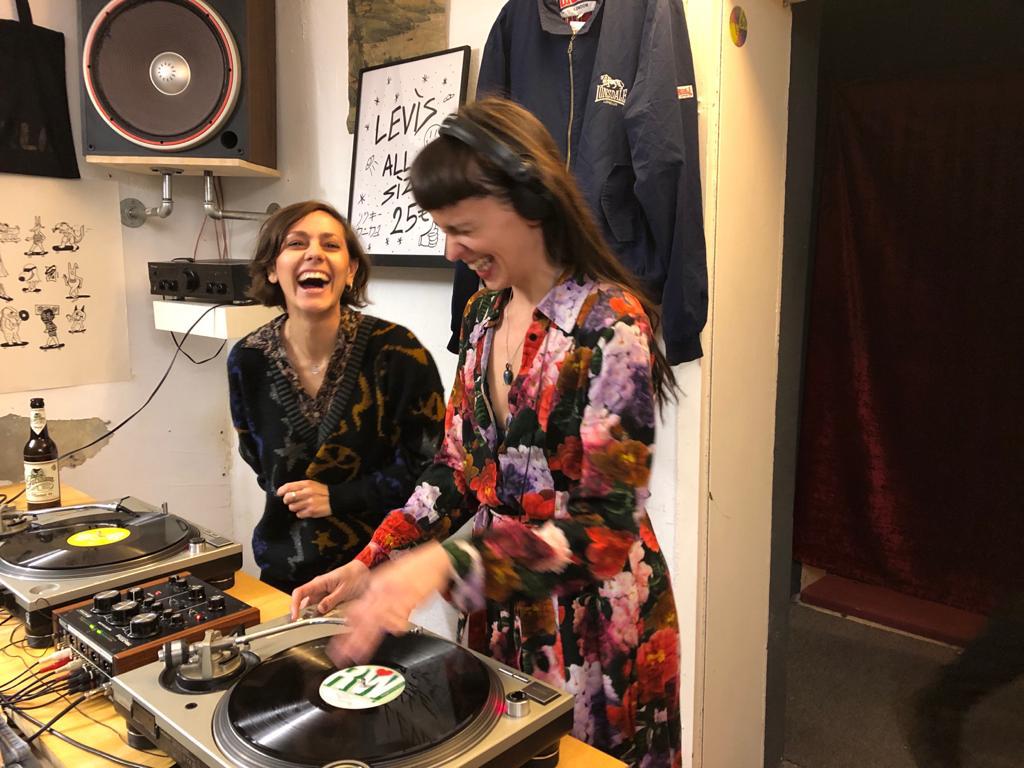
Their jams today are still as inspiring to the pair, based around improvisation and playing drum machines and synths like acoustic instruments. “We are just analogue,” Enrica says. “We only use machines, it is more intuitive and everything we produce – we play it. We just use Ableton to record. We knew what time we’d go there, but we wouldn’t know what time we would leave.”
“With her I found the missing part,” says Dea. “I brought to the table my classical education and my knowledge of how to play the keyboard and to put emotion through the melody and the bassline. She came to the table with her knowledge of how the studio works with a lot of gear and the technical knowledge.”
These differences are reflective of their backgrounds in music. Enrica was born in Sardinia, where she started going to local clubs around the year 2000, at the turn of the millennium. “I remember that it was special for me because I discovered my sexuality,” she says. “There were a lot of gay promoters who organised parties and so the techno scene in Sardinia was connected to it – also the parties were amazing.
“As soon as I had a chance to listen to that I made a big change in my life. Before that I was an athlete. I did judo, I was a runner, but as soon as I discovered electronic music I quit everything – I was just into music,” she adds. “I went to Sonar 2002, Ibiza 2003 – travelled a lot [to party] early on.”
Soon, Enrica begin to produce music herself, techno mostly, but also ambient, under a moniker she declined to name, and with that came her entry to DJing. “When I started making beats, I went to a friend’s house to practice with vinyl,” she says. “And immediately I was good, you know. I didn’t have that many difficulties – okay a few but it was already good!”
She would soon be playing at parties in Sardinia, Berlin and beyond, all the while honing her craft mixing and making records across the next two decades.
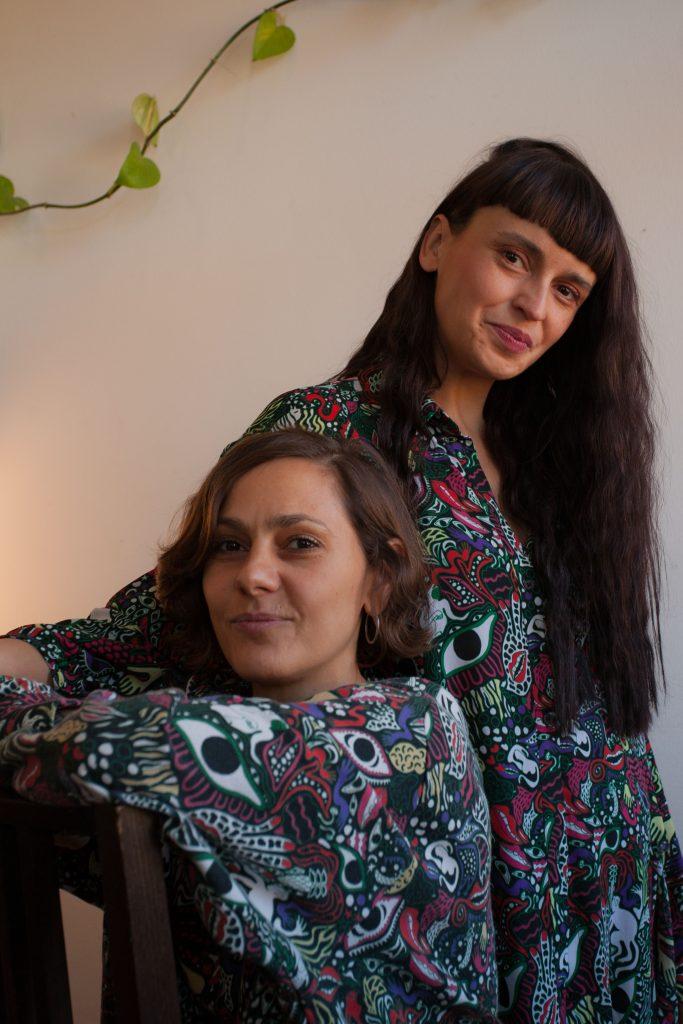
Dea’s entry into the world of dance music came while growing up in the Croatian coastal region of Dalmatia, in the wake of the Yugoslav Wars and collapse of Yugoslavia, where she ingrained herself in the emerging underground rave scene of the early 2000s. She says: “We had an explosion of illegal parties, like when there is a cultural desperation or a kind of culture breaking down – that is when subculture emerges.”
“I was going to high school and there I met my first raver crew, and they introduced me to partying,” she adds. “There was this club called Metropolis. The scene was really incredible I remember. Now I’m playing the records of these guys we had like Terry Francis, Bushwacka, Mr. C – they were regularly playing for 300 people.”
Her love for partying was to take her across cities and parties across the world, including a visit to early-years Fabric, numerous trips to Berlin and the genesis of Dimensions Festival. “My whole life basically shaped my musical identity that I have now and I’m grateful for everything because I have had so many different influences,” Dea explains. “So just as I started thinking: ‘Okay, DJing is actually something I want to do,’ I already had so much music that I had listened to and experienced live.”
DJing came more recently compared to Enrica, but she picked it up quickly, relentlessly digging and mixing records at home. At one after party in Ibiza, she was approached by Nicolas Lutz, a friend of Dea’s ex-boyfriend, who had previously explained her absence at a party as being because she had recently started mixing records and wanted to stay in instead to play them.
“How’s it going with the records?” Nicolas asked. “Great actually, I’m enjoying it a lot,” replied Dea. “Okay – make me a podcast for My Own Jupiter,” Nicolas said.
“I was like why what the fuck, I’m so overwhelmed, and I wrote to him when I came home,” Dea explains about the encounter. “I was like ‘Listen, it’s not fair, I’m not even a DJ yet, I don’t have my sound. I have so many friends that could use this opportunity better.”
“And he goes: ‘I’m glad that you think like this but it’s my channel. This chance is yours – take it or leave it,’” she continues recalling.
So she decided to take the opportunity, and after a year of working on it, her podcast was released as the 12th instalment of the MOJ mix series – an hour long journey full of growling basslines and strange soundscapes.
It caught the attention of Enrica before they’d met, who was scrolling through her computer one day. “In that period I was searching for my new name because I wanted to have a new project, and I wasn’t sure if it was good to call myself Enrica Falqui,” she says. “So I thought about ‘Doa’. In the Sardinian language ‘Doa’ means the line that divides two fires.
“I was convinced I’d found the name,” she continues. “But then two days later I saw the My Own Jupiter podcast [by] Dea. It was too similar this name I couldn’t use it – but I listened to it and I liked it a lot.”
ERIS’s other big break came from another legend of the scene. Yuki Masda aka DJ Masda had a neighbouring studio to Enrica’s and had been asking her to send him some of the music that she was making. “I thought at the time that I was not ready to give him [any of] the tracks,” says Enrica. “When I started making music with Dea, I realised it was something different – something more complete than what I was making before.
“So I asked her: ‘Hey, I have this opportunity, I would like to share it with you. If you want I can give our tracks to Yuki?’” she adds.
After he passed by to their studio one day to hear what they had been making, sitting on the sofa as they played him their productions, Enrica and Dea sent Yuki the first four tracks that they had ever made together, which would be released as the Moments EP and the 18th instalment on Cabaret Recordings.
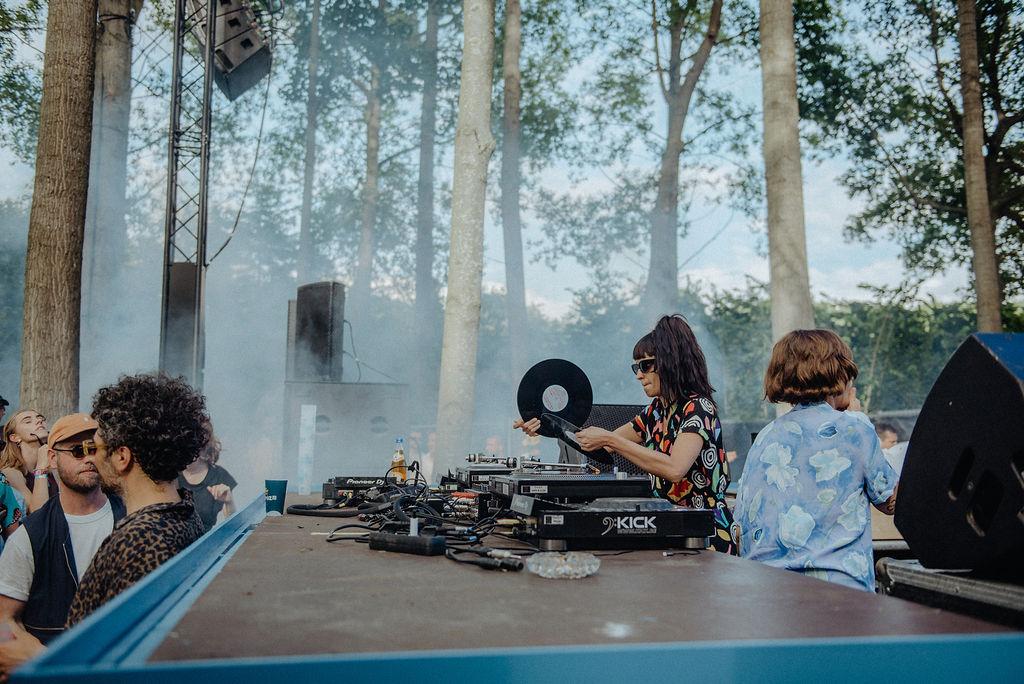
Their first gig together came soon after, with the RA+RE collective, whose members consist of Melody, Ethel, ABI, Jessie and Rohmi, inviting ERIS to play in Berlin’s ://about blank for their Valentine’s Day showcase in February 2019. Since then, ERIS’s bookings have ballooned, propelled by their unique take on DJing. Their sets are usually filled with intricate, complex rhythms, driving grooves, and wonderfully menacing sonics.
“What really captures my attention is how the groove is made, the melody and the timbre is elaborated,” says Enrica about the kinds of tracks that she likes to play. “I noticed that I’ve been producing a lot lately, so I listen for how to use effects. I want music that is really treated well – I could never play a track where the effects in that track are too aggressive or cold.”
Dea expands: “I would say we both prefer lush, warm sounds. It depends really on space and time a lot. I cannot tolerate a certain kind of music in a forest or on a beach that I would like to hear in Berghain, for example.”
“Yes, it’s really important for us,” Enrica agrees.
The same goes for the time that their set is at. Playing the right music in the right context is so important for the pair that if they are playing at a club or festival that they have not been to before, they will ask promoters to send them pictures of the stage and room, as well as asking details about the capacity to get the best sense of what the party will be like as possible.
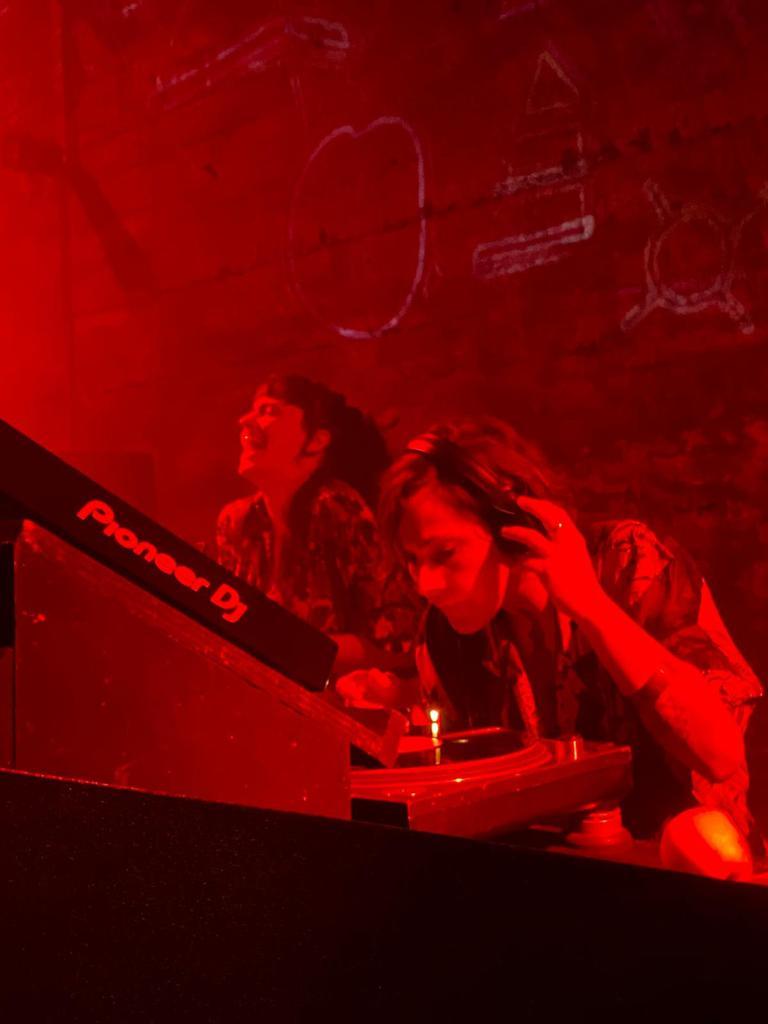
This level of preparedness also extends to their back-to-backs and making sure that they are in sync when they are playing a gig. “Before going to gigs we call each other,” explains Enrica. “We think about what we take, what kind of records.”
“[It’s] because of the variety we have,” adds Dea. “We can play like warm, super sexy house and we can smash techno at 140 BPMs no problem, so we always ask: ‘What are we packing?’”
The duo also regularly send each other new records they are buying, and they know each other’s bags almost inside out. The smoothness of their B2Bs are testament to this, and means that they can control the energy of their sets carefully, while bouncing off one another.
“It’s very important when one of us plays a bomb, to understand how to respond it,” says Dea. “That it’s not just like bomb after bomb but also you don’t bring the vibe down. It’s good to know each other’s important tracks and to know what kind of goes together, but it’s also fun to surprise each other so it’s something new and we don’t get bored.”
Enrica jumps in: “This happened at Brave Festival [in Kyiv, Ukraine], when I played this Luca Morris tune.”
“Yes! I’d never heard that track in my life. Like me, I would never play it but at that moment the track made the party,” replies Dea. “And then I did like the best mix ever with the voice from the other track, and people later that bought the record that [Enrica] bought were calling her and asking: ‘What version do you have? Because it doesn’t have the voice’ and she was like it was the voice from Dea and the tune she was mixing in.”
ERIS credit their set at the festival as the best that they have played together to date. “It’s still the most magical experience in my life, not just playing but what happened,” says Dea. “Like the synergy between us and the people and the energy that was created there.”
It almost didn’t happen like that though, as ERIS’s first festival set, a nervous Dea nearly backed out of the set 15 minutes before her taxi arrived to take her to the airport. She took a look inside her record bag and convinced herself that she had packed all of the wrong tunes. That quarter of an hour was used to frantically swap records out for ones that would be more suitable, which in the end would make all the difference.
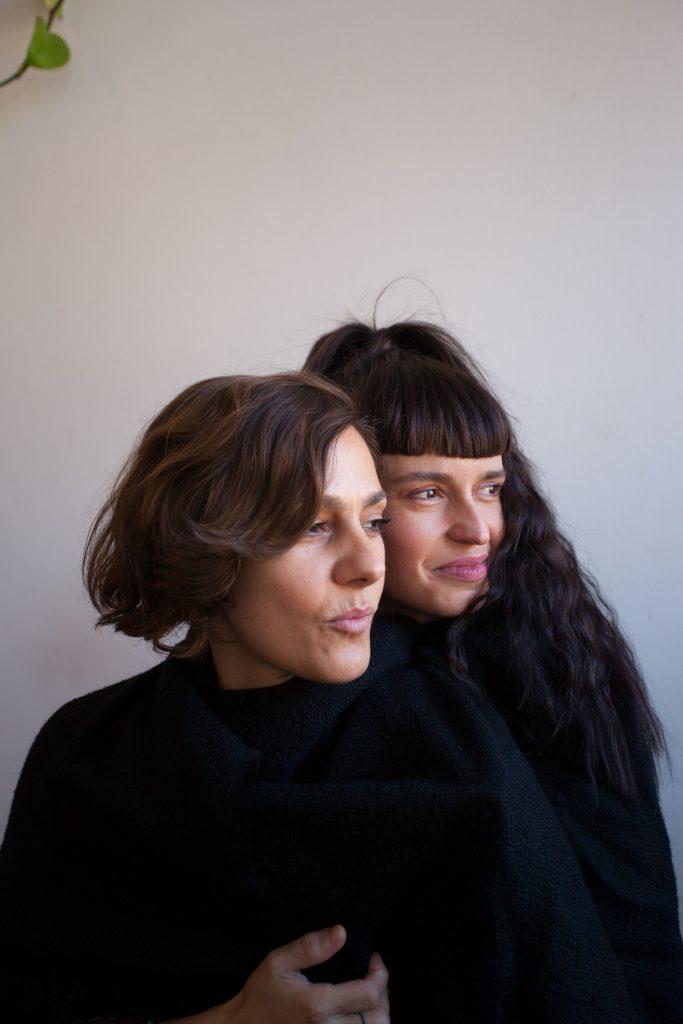
For both, the collections that they fill their bags from have come from their decades-long love affair with music, as well as keeping up with plenty of digging to keep their bags fresh. Despite their distinctive sound, they don’t follow strict methods or rules for finding music.
“It’s always genre-free,” says Dea. “I was with a friend and he was like ‘I just go for techno [and] electro boxes’, and I was like ‘really? You are missing out on so much amazing music’. I go with the more feminine way – like something draws me into the record. I go for an interesting title or artwork or something that reminds me or something. That’s how I find the best tracks.”
Enrica says: “We just dig what we like. When I play alone I play everything – proto techno, house, electro. Though I think my [own] sound is stronger, tougher than ERIS.”
Playing on their own is also key for Enrica and Dea, who both have burgeoning solo careers alongside of ERIS. Dea recently joined the bill for the 12th birthday of legendary London agency and party Toi.Toi.Musik, playing alongside DJ Masda, Edward and Dan Andrei, and for her solo gigs she will be joining the booking agency, headed by Isis Salvaterra, joining Rhadoo, Herodot, Junki Inoue and other key players in the scene.
It came after a gig for south London party Moon Coral in March, who ERIS had been booked to play, but Enrica couldn’t make the gig after catching an illness. Dea took the reigns on her own and impressed Isis so much that she asked her to become part of the Toi.Toi. family. “I’m very happy because I want my booker to be a friend and someone who understands me and my way of life,” Dea says, with a laugh. “With Isis she is really one of the few people who can go harder than me – at Sonar I was begging her to send me home from the afters.”
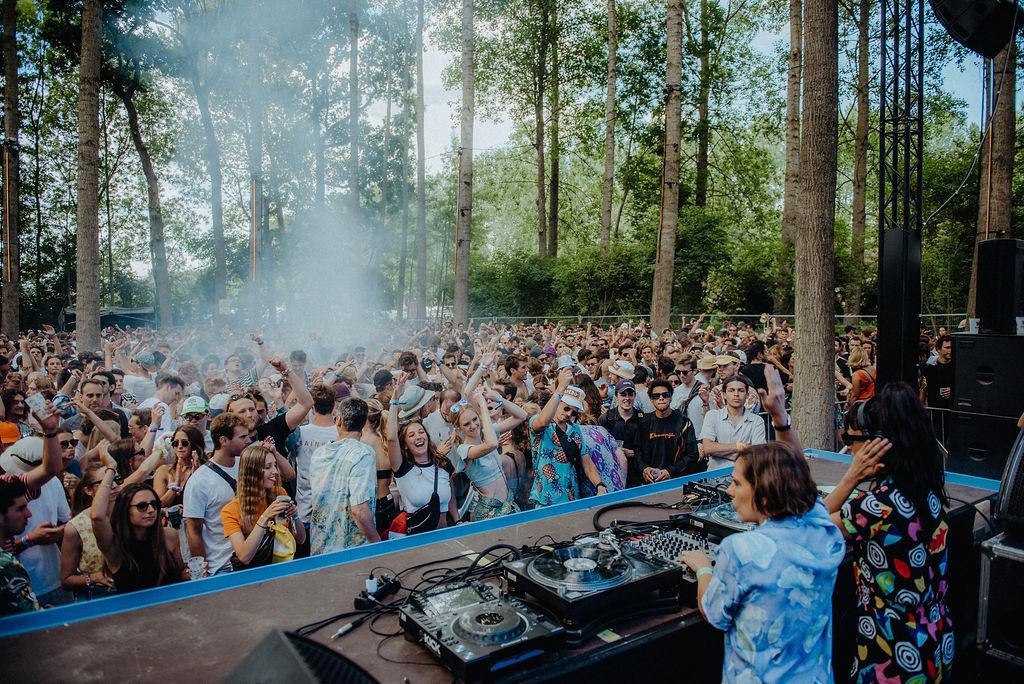
Enrica on the other hand is working an exciting solo EP, the details for which she has to keep tight-lipped about. “I can’t wait for it,” she says. “[I’ve already finished] one track, an ambient track and I hope to finish [the record] before the end of summer.”
She has also joined the Roof Booking roster alongside artists such as Quest, Christian AB and Giammarco Orsini, and is preparing for some exciting gigs including the Amsterdam Dance Event (ADE) where she will play three times, twice on her own and once as ERIS, followed by a November date at Fabric supporting Jane Fitz.
Despite the success of their solo careers, it’s clear that ERIS will remain as important to them as their own sets. “It’s just different,” says Dea. “When we travel together, it’s more fun and more relaxed, because you put one track on and then you get to dance. But what she plays inspires me to play something different than what I would play alone.”
As a pair, ERIS are part of the Interwave roster, alongside the likes of Chris Korda and Charlotte. With the latter, they have a series of gigs playing b2b2b lined up. “We are very happy to be starting something new – playing with Charlotte,” says Enrica. “It’s nice to play with another person who we really like. She was the first person to book us for an international gig in 2020, in Paris just before the pandemic.
“Imagine, that day we were about to close the project [ERIS],” she continues. “We had a bad fight in the studio.”
The pair had disagreed over a track, with Dea storming out the front door of the building, sticking her two fingers up as Enrica chased her, mobile in hand having just received the phone call. “Dea, we’ve been requested to play Paris!” she shouted.
“And she came running back in,” Enrica says, laughing.
After a hefty summer of gigs and festivals, the pair are just looking forward to getting back to making music. “It’s really difficult to combine DJ life with the producer life, because one year ago, we were not playing so much because we were always in the studio,” Enrica says. “Now we come back Monday, maybe it takes two days to recover, I go to record shops maybe two times, then it’s Thursday already.
“I miss the part of my life being in the studio not thinking about anything else,” she continues. “For me making music is like meditation.”
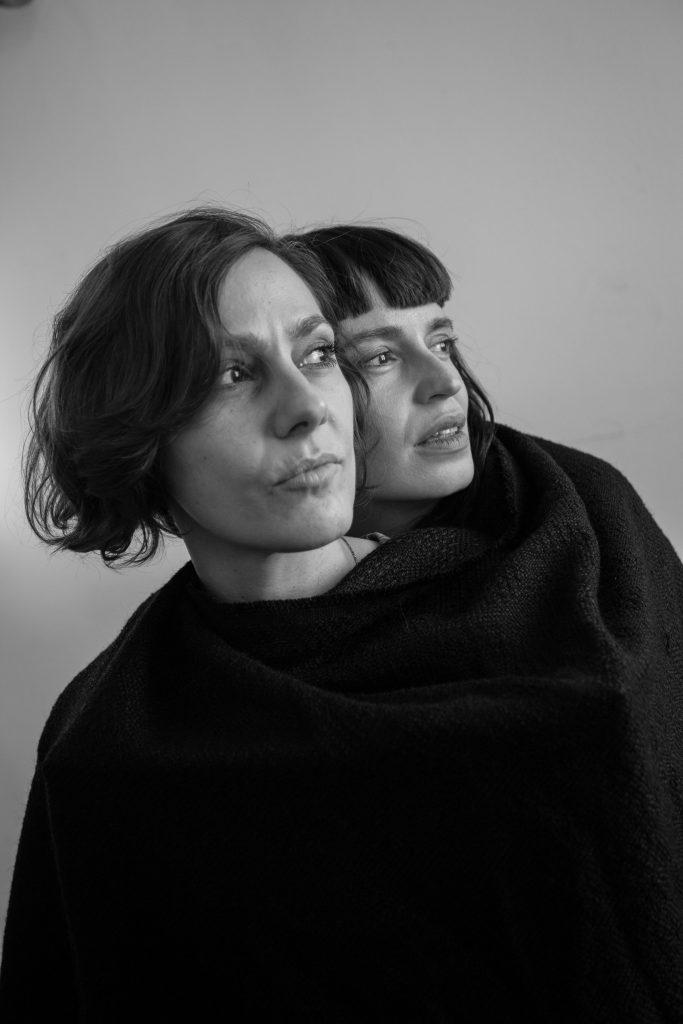
More info on ERIS
Facebook | Instagram | Resident Advisor | Soundcloud
More info on Enrica Falqui
Facebook | Instagram | Resident Advisor | Soundcloud
More info on Dea
Instagram | Resident Advisor | Soundcloud



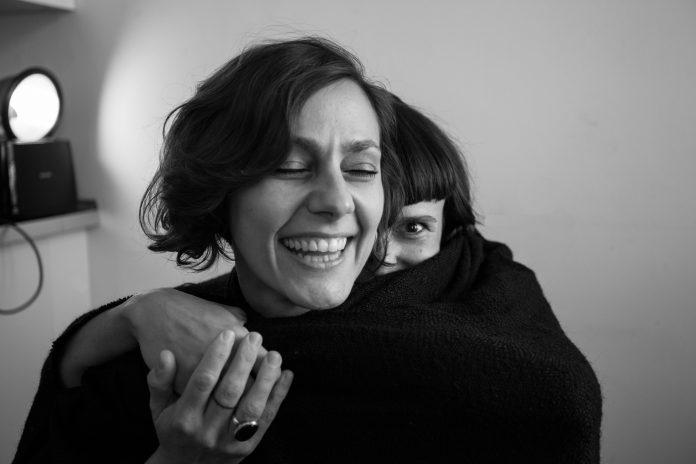
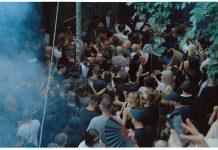
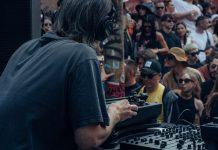

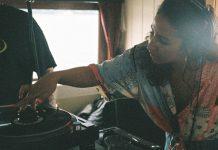
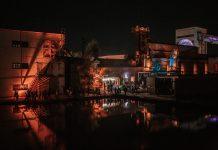
![Premiere: B1 – Enrica Falqui – Plexus [MR-04]](https://trommelmusic.com/wp-content/uploads/2021/05/mr-04-cover-social-front-low-Enrica-Falqui-e1620149037212-218x150.jpg)
![Premiere: A2 – mrelss – Season of Reason [AMAM044]](https://trommelmusic.com/wp-content/uploads/2026/02/label_side_A-Alessio-Mereu-324x235.jpg)
![Premiere: 2 – Santon – Only a Test (Alain de Saracho Remix) [SDR012]](https://trommelmusic.com/wp-content/uploads/2026/02/Santon-Only-a-Test-EP-Artwork-Alain-de-Saracho-100x70.png)
![Free Download: Zombies in Miami – What Ya Doing [TFD128]](https://trommelmusic.com/wp-content/uploads/2026/02/photo_2026-02-12-10.38.24-e1770892750337-100x70.jpeg)
![Premiere: 1 – DAT (Italy) – Not My Plan [SENS001]](https://trommelmusic.com/wp-content/uploads/2026/02/IMG_9750-Sensazione-Stupenda-100x70.png)
![Premiere: B1 – Kolhida – Break And Escape (Cezar Lazãr Remix) [TTM003]](https://trommelmusic.com/wp-content/uploads/2026/02/IMG_2883-Aleksandr-Gocheleyshvili-100x70.png)
![Premiere: A1 – JJ Fortune – Design [LNS10]](https://trommelmusic.com/wp-content/uploads/2026/02/1188556-100x70.jpg)
![Premiere: A1 – Alexander Skancke – Saga Of Subvision [QRK015]](https://trommelmusic.com/wp-content/uploads/2026/02/photo_2026-02-03_17-31-24-100x70.jpg)

![Premiere: A1 – Light Blue File – JUNIOR [RCR002]](https://trommelmusic.com/wp-content/uploads/2026/02/RCR.002.FRONT_.LABEL-Will-Gilliland-100x70.png)
![Premiere: A2 – Lisovskyi – Just One Good Whiff [FIB004]](https://trommelmusic.com/wp-content/uploads/2026/02/B-100x70.png)